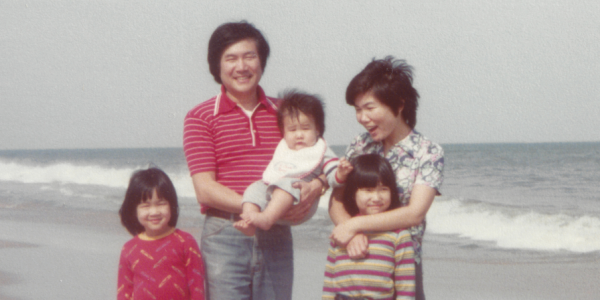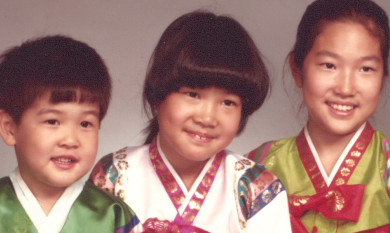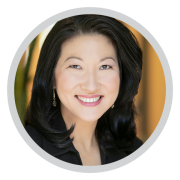Making Connections. My NAEYC Journey: Sharing the Heart of Early Learning

You are here
“How did you get to NAEYC?”
As early childhood educators and NAEYC members, this is a question we hear frequently. People are interested in how NAEYC became part of our story: How does the world’s largest early childhood membership organization connect to our journey? Where did we first learn about NAEYC’s mission, community, programs, advocacy, standards, and content?
As NAEYC’s new chief executive officer, a key priority for me will be deeply engaging with these questions. I look forward to visiting programs throughout the country to connect with educators and to have the chance to understand your journeys. I want to use my platform to amplify your stories, strengths, and needs.
Because these are questions I will be asking and that I feel deeply about, it’s only fair for me to answer them about myself! As a grade school student, I knew my passion was to make a difference for young children. As the oldest child of Korean immigrants, I watched and supported my parents as they juggled the challenges of jobs with the health and education of their children—all this without having a strong grasp of their adopted country’s language and culture. As the first person on both sides of their families to come to the United States, they each navigated learning how to support their family, their siblings, and their parents. I’m still in awe of their courage: my father arrived in the United States with one suitcase and $200 while my mother immigrated after nursing school to provide opportunities for her family.
Over the years, my parents did what many parents of young children do: they brought my grandparents to live with us for a period of time, they enrolled my siblings and me in a faith-based preschool, and they chose to work different schedules to balance the sometimes competing needs of child care and work.
I have an early, distinct memory of watching TV with my Grandmother 할머니 (“Halmoni”) as a way to learn English. English was my second language, and I acutely experienced how it felt not to have the words to communicate. Over the years, I served as a translator for both language and culture for my family. This helped me gain a deep appreciation early on of the challenges of navigating caregiving, education, and culture.
 As with many Korean parents, mine were heartened to hear that my interest in young children might translate into becoming a doctor: becoming a pediatrician seemed appropriate for my interests and aligned with what they hoped for my future. However, my interests and studies took me away from medicine and toward sociology, education, policy, and business. An undergraduate internship with a juvenile court judge, studying education policy as a graduate student at the University of Virginia, and researching employers and work/family supports in business school at the University of Oxford fed my hunger to advocate for investment in early childhood. Study after study that I read verified that the early years of brain development are the most critical; thus, early childhood is the most impactful time for ensuring that young children are supported.
As with many Korean parents, mine were heartened to hear that my interest in young children might translate into becoming a doctor: becoming a pediatrician seemed appropriate for my interests and aligned with what they hoped for my future. However, my interests and studies took me away from medicine and toward sociology, education, policy, and business. An undergraduate internship with a juvenile court judge, studying education policy as a graduate student at the University of Virginia, and researching employers and work/family supports in business school at the University of Oxford fed my hunger to advocate for investment in early childhood. Study after study that I read verified that the early years of brain development are the most critical; thus, early childhood is the most impactful time for ensuring that young children are supported.
I entered the field of early childhood education at Bright Horizons. There, I worked to convince employers that it makes business sense to invest in high-quality early education programs for their workforce families. This is how I learned about NAEYC, its early learning standards, and its program accreditation. When employers sponsored child care at NAEYC-accredited programs, families knew their children were in a high-quality program. They also knew their employers were committed to quality.
I joined NAEYC in 2019 as its inaugural chief strategy and innovation officer. While my focus was supposed to be growing the association’s programs and impact, the COVID-19 pandemic required a pivot. I almost immediately began working to keep the early childhood education field connected with each other and to use the crisis to better educate families, policymakers, and employers about the ways they could help support and provide resources for early childhood educators.
I look forward to visiting programs throughout the country to connect with educators and to have the chance to understand your journeys. I want to use my platform to amplify your stories, strengths, and needs.
As a working parent, I experienced the joys of employer-sponsored child care and the benefits of on-site child care. I loved being able to take my first son to a safe, developmentally appropriate learning environment in an accredited program. The center director and educators became part of our family, and I learned from them every day. Maureen, our first infant teacher, showed me how Cheerios are a terrific way to develop fine motor skills while enjoying a snack. Hala and Patti, our toddler teachers, provided detailed notes about art projects and sensory experiences. Kelly, our preschool teacher, illuminated the delight of learning through play. She also was the first person to help us see that our son might be a different type of learner, which eventually helped us understand his gifts as someone who lives on the autism spectrum. As we added two more sons to our family, we learned how to support each of our children through their early childhood journeys because of the knowledge, caring, and skills of the early childhood educators in our lives.
Thanks to the early childhood educators who cared for my sons and to the stories I hear from those in the field, I am compelled to understand these educators’ experiences and to advocate on their behalf. In the months ahead, I will use this column to talk about NAEYC membership, NAEYC’s role in the evolving early childhood policy landscape, and NAEYC’s efforts for a more sustainable and equitable workforce. Underlying all of these discussions are stories; specifically, your story: How did you learn about NAEYC, and how do you go about your daily, life-changing work? A key priority for me as CEO will be to deeply engage with your journeys and to use my platform to amplify them.
I look forward to visiting programs throughout the country to connect with you. If NAEYC is going to achieve its vision that “Each and every child thrives and learns in a society dedicated to ensuring all children reach their full potential,” then we need to be an organization where every early childhood educator sees themselves as belonging. I want to hear your story and learn how you got here.
Michelle Kang serves as NAEYC’s Chief Executive Officer.
